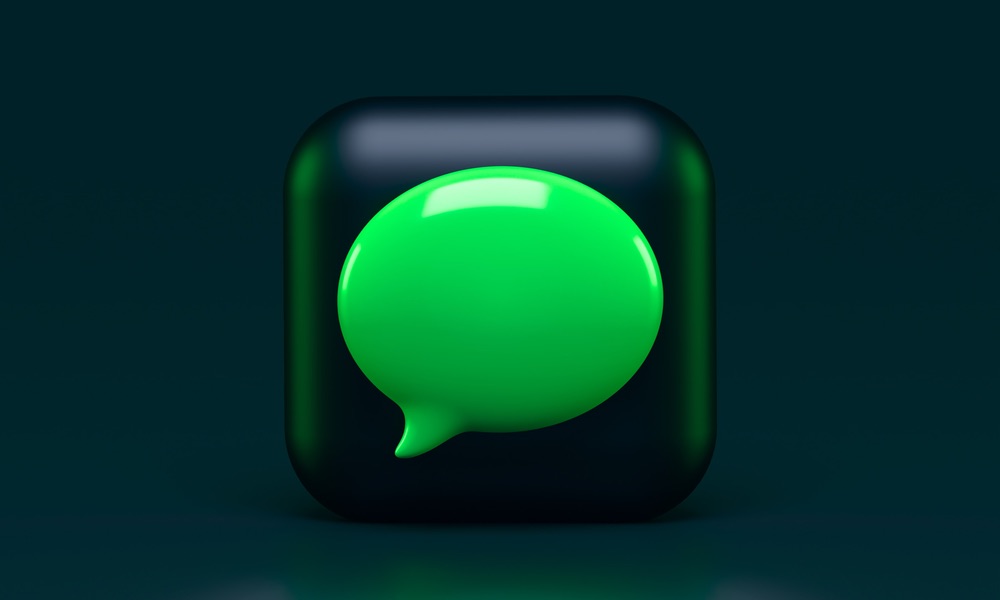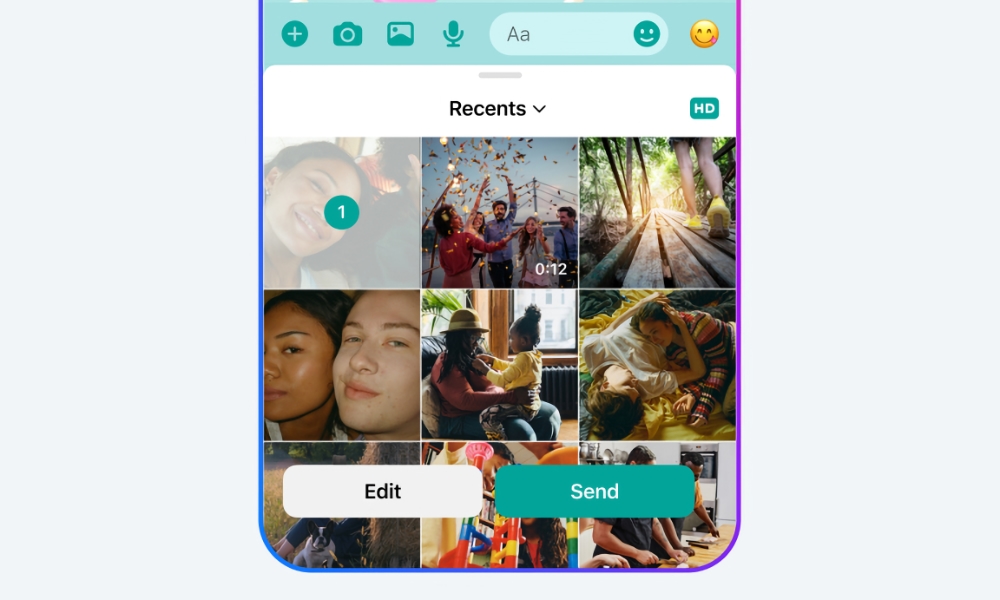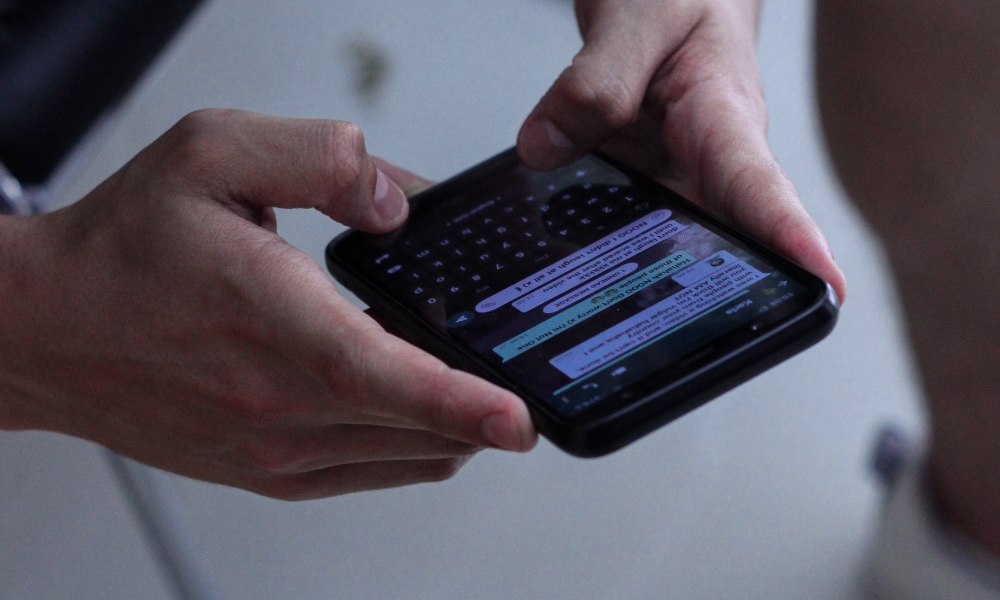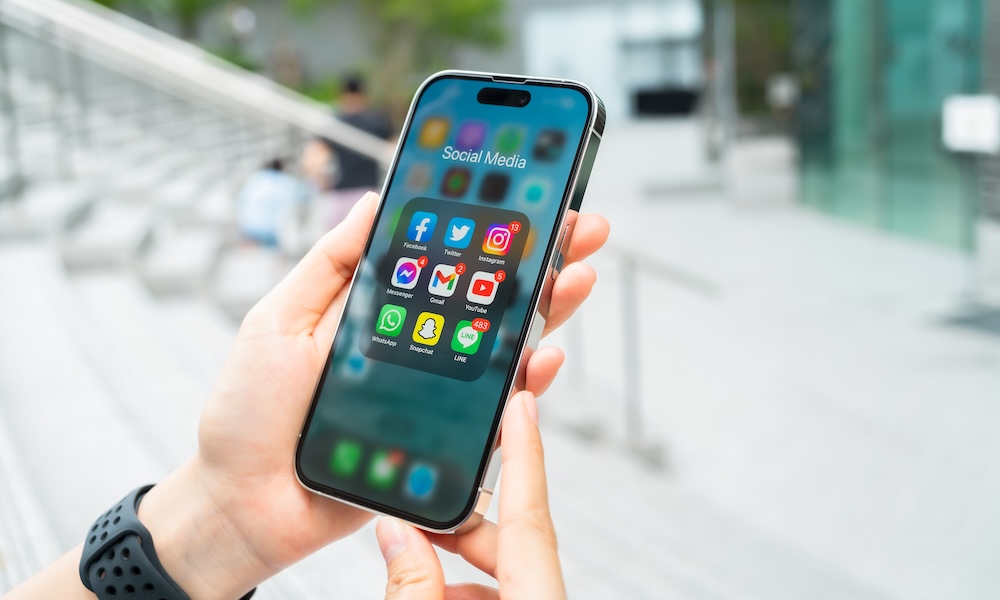iMessage, Messenger, or WhatsApp? What to Use and When
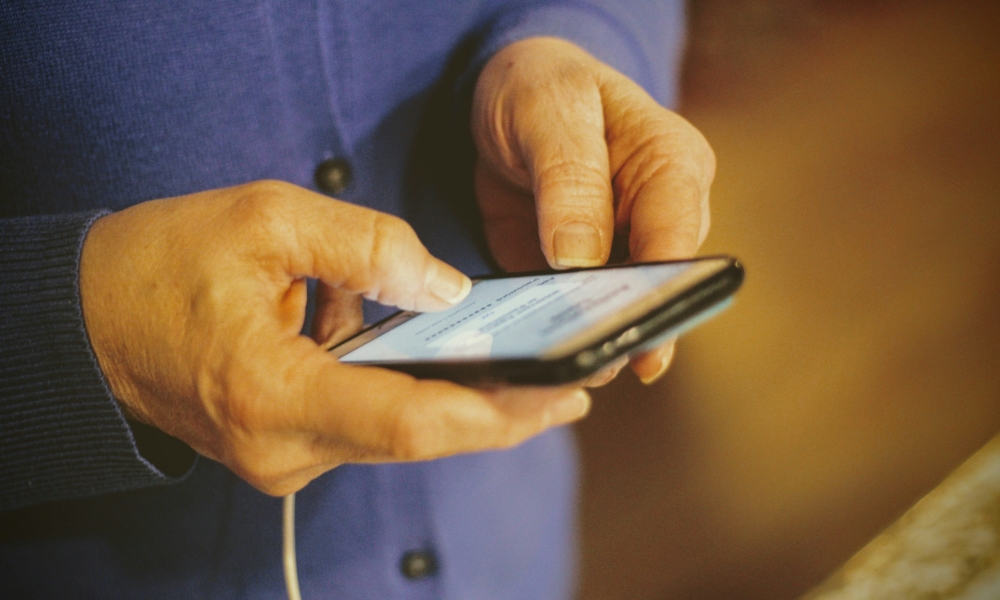 Joshua Hoehne
Joshua Hoehne
Toggle Dark Mode
We all message people differently. Some iPhone users prefer the privacy and convenience of chatting with iMessage, while others live inside Messenger group chats. And for millions around the world, WhatsApp is the default way to stay in touch with friends, family, and even your favorite businesses.
While there are dozens of ways to text someone in 2025, the most popular instant messaging apps are still the same. It doesn’t matter if someone has an iPhone, an Android phone, or a computer; chances are, they can communicate with you using iMessage, Messenger, or WhatsApp.
With that said, if you can use all of them, which one is the best for you?
The truth is, no single messaging app does it all. But when you understand the strengths, limitations, and ideal use cases for each one, it gets easier to pick the right tool for your next conversation. Let’s take a closer look at all three and see if we can help you figure out which one is the best for every occasion.
iMessage: Apple’s Built-in Messaging App
If you use an iPhone, iPad, or Mac, iMessage may already be an integral part of your daily routine. There’s no separate app to download, and it seamlessly integrates with nearly every part of the Apple ecosystem, from Siri to Apple Cash.
What sets iMessage apart is how flawlessly it works across all your Apple devices. You can start a conversation on your MacBook, continue it on your iPhone, and pick it up again on your iPad without missing any part of the conversation.
Media like photos and videos are sent in high resolution, and effects like message reactions, stickers, and animations keep all your conversations feeling lively and fun.
And whether you like it or hate it, iMessage also includes some Apple Intelligence features, such as summaries for when you missed an important conversation in the group chat and AI-generated images to send to your friends and family. For instance, you can create a funny sticker of your friends, or ask Image Playground to create a birthday illustration of your significant other.
For iPhone 15 Pro and newer models (or iPads with A17 Pro or M-series chips), this upgrade transforms iMessage into a more personalized app for every occasion.
Still, the app is far from perfect. The biggest downside is that iMessage is strictly an Apple-only service. There’s no native Android version, nor is there any web access for non-Apple users. This means that chatting with an Android user lacks a lot of the features that make iMessage special. With iOS 18 or later, you’ll still likely fall back to RCS, which is much better than SMS, but still falls short of what other messaging apps can do across multiple platforms. Further, since iMessage is one of Apple’s ways to encourage more people to buy iPhones, that isn’t likely to change anytime soon.
iMessage is best when you and your contacts are all within Apple’s ecosystem. It’s also a strong choice if privacy is a priority, thanks to built-in end-to-end encryption. Just don’t expect it to play nicely with non-Apple users.
Messenger: Social, Flexible, and Packed With Features
Messenger is the most versatile of the three apps, and that makes sense given its origins.
It started as a part of Facebook, and even today, it’s tightly integrated with your Facebook and Instagram accounts. If you have friends or family members already on Facebook, finding and messaging them via Messenger is incredibly easy.
The platform works across iOS, Android, and desktop browsers, which gives it a clear advantage over iMessage in terms of device compatibility.
You can respond to messages from your phone or laptop and switch between them instantly. Messenger also allows you to sync chats across devices without a phone number, which is something WhatsApp still requires.
Messenger shines in group chat scenarios. You can customize your threads with themes, assign nicknames, share polls, and even play games. The cross-app chat integration with Instagram means your conversations are no longer limited to just one app. Video and voice calls are built in, and support for features like screen sharing and AR effects keeps things fun.
On the other hand, privacy might be a concern for some users, especially if you’ve kept tabs on Meta’s track record.
Messenger supports end-to-end encryption for one-on-one and group chats, though not all conversations are encrypted by default. If you want a bit of extra privacy, you can start a Secret Conversation, which lets you chat with someone in a space where no one — not even Meta — can see it. However, since Meta (formerly Facebook) owns Messenger, concerns persist about data tracking, targeted ads, and metadata collection. All of these concerns are valid, as Meta doesn’t have the best track record when it comes to privacy.
Some users also feel that Messenger has become bloated with features like stories, ads, and notifications for suggested contacts or games. If you’re someone who likes a cleaner, more minimal messaging experience, Messenger might feel overwhelming.
With that said, Messenger is ideal for people who are already active on social media and want all-in-one communication. It’s also a great option when you’re coordinating with friends across platforms and don’t want to worry about who has what phone.
WhatsApp: Private, Global, and Widely Adopted
WhatsApp may not be as popular in the US as in other regions, but globally it dominates the instant messaging market.
It’s the messaging platform of choice in Europe, Latin America, India, Africa, and large parts of Asia. And in 2025, it’s still going strong thanks to its simplicity, cross-platform compatibility, and privacy-first approach.
WhatsApp offers end-to-end encryption for all conversations by default, regardless of whether it’s a text, voice call, video call, or voice memo. Your messages are encrypted before they leave your phone, and only the intended recipient can read or listen to them.
The app works on iOS, Android, Windows, macOS, and even in a web browser (via WhatsApp Web), so you’re not limited to a single device type. It’s also designed to work internationally, with support for low-bandwidth networks and the ability to make encrypted calls without relying on traditional phone lines.
Updates in recent years have added more advanced features like HD photo and video sharing, the ability to edit sent messages, multi-device support without needing your phone nearby, and even screen sharing during calls. WhatsApp also introduced Communities and Channels, allowing for large-scale group communication that works more like Discord or Slack.
One limitation is that WhatsApp accounts are tied to your phone number, not a username or Apple Account. That makes setup quick and easy, but it can still be frustrating if you want to keep your number private or have multiple accounts. Additionally, although WhatsApp has been owned by Meta since 2014, it’s largely maintained independence regarding encryption and data collection policies.
Overall, WhatsApp is the best option when you need a secure, reliable messaging app that works across all devices and operating systems. It’s also a go-to for international communication, business messaging, and keeping in touch with friends or clients who aren’t part of the Apple ecosystem, or who don’t like social media.
When Should You Use Each Messaging App?
If all your friends or your entire circle have an iPhone, iMessage is the clear winner. You get fast, seamless conversations, high-quality file and media sharing, and the kind of integration no third-party app can match. Add in the latest upgrades and new features, and it’s one of the smartest messaging tools on iOS today.
Messenger comes into play when you’re already immersed in Facebook or Instagram. It’s fun, social, and packed with personality. If you like custom themes, GIFs, or Messenger Rooms for video calls, it’s hard to beat for sheer versatility. Just remember that you might be giving up some privacy in exchange.
WhatsApp is your best bet for secure, quick communication across all platforms. Whether you’re texting friends overseas, managing a family group chat that includes Android users, or just want a phone number–based messaging app that keeps your data private, WhatsApp is one of the most solid choices.
Many people end up using two or even all three of these apps on a regular basis. That’s not a bad thing; it’s just the reality of staying connected in a diverse digital world. Having a go-to app for your Apple contacts, another for social media friends, and one for global or cross-platform chats gives you the best of all worlds.
If that sounds overwhelming and you only want to choose one, we recommend you try WhatsApp out. You’ll get the best of all options with very few compromises.
Plus, even if you have to use your phone number, it’s still a better option if you don’t want to be stuck to the Apple ecosystem or your social media account.
There’s No One-Size-Fits-All Messaging App
In 2025, messaging isn’t about finding the app for you — it’s about using the right one for the right moment. iMessage still defines the iPhone experience, Messenger brings unmatched social integration, and WhatsApp provides a privacy-focused, global alternative.
You don’t need to pick just one, but you don’t have to use them all either. Understanding what each does best means you’ll always have the right tool for the right conversation — without the noise.


